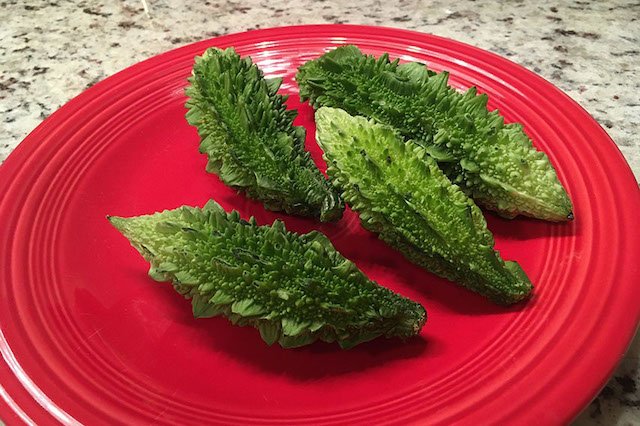
In a new study, researchers found that the Asian fruit commonly eaten in India that also is known as bitter melon shows promise in slowing the progression of cancer.
It has properties that prevent cancer from growing and spreading.
The research was conducted by a team at Saint Louis University in St. Louis, Missouri.
In the study, the team tested whether bitter melon, which is a folk medicine for diabetes, also could protect against cancer.
The team did experiments in the laboratory and in mice and found the fruit, which is cooked like a vegetable and has seeds like a fruit, stops cancer cells in their tracks.
All animal model studies that they conducted showed similar results, an approximately 50% reduction in tumor growth.
Although the research has not yet been tried in people, it points to bitter melon as a potential alternative therapy to complement traditional cancer treatments.
Their next step is to conduct a pilot study in cancer patients to see if bitter melon has clinical benefits and is a promising additional therapy to current treatments.
The team says natural products play a critical role in the discovery and development of numerous drugs for the treatment of various types of deadly diseases, including cancer.
Therefore, the use of natural products as preventive medicine is becoming increasingly important.
The current study builds upon years of work that shows bitter melon inhibits the replication of breast, prostate, and head and neck cancer cells in lab and in a mouse model.
Bitter melon is available as a green vegetable in local Asian markets. People can prepare bitter melon in an assortment of ways – steaming it and mashing it with green chilies and a bit of salt or potatoes or stir-frying it with eggplant, squash and greens and seasoning with spices.
It also can be blended into a smoothie.
The lead author of the study is Ratna Ray, Ph.D., a professor of pathology.
The study is published in Cell Communication and Signaling.
Copyright © 2019 Knowridge Science Report. All rights reserved.



